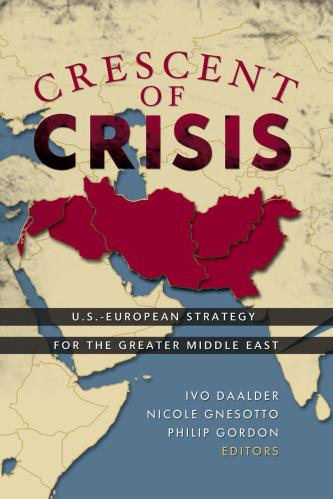Although the war in Afghanistan doesn’t frequently make headlines, it is now in its 17th year. Is the reinvigorated U.S.-led strategy today—following something of a Taliban comeback after 2014—showing promise in reclaiming momentum on the ground?
On March 30, Foreign Policy at Brookings hosted Brigadier General Roger B. Turner, Jr., recently back from a tour in Helmand Province, Afghanistan, to discuss the current state of the conflict.
Brookings Senior Fellow Michael O’Hanlon reminded the audience about the goals for renewed missions in Helmand Province. U.S. Marines were reintroduced to the region in early 2017 to help Afghan forces retake territory and control from the Taliban. In the words of General Turner, this was a job of “restoring U.S. presence and mentorship in Helmand.”
Helmand Province is in the southwest part of the country, a few hundred miles from the capital of Kabul and considerably closer to the key city of Kandahar. Helmand is something of a spiritual home to the Taliban, according to O’Hanlon, and it is where the September 11 attacks were prepared and ordered.
General Turner briefly described the mission he oversaw there from April 2017 to January 2018. During that time, his team “effectively enabled partners to steal the initiative from the Taliban.” Since then, he said, “Afghan partners have maintained incredible tempo and the Taliban is on the back foot.”
Military involvement in that part of the country has been significant in the past. As shown in the Afghanistan Index on a country level, there was a surge in troops nationwide, and also in Helmand, from 2010 to 2014 there were 30,000 coalition forces in Helmand. That was about 20,000 U.S. Marines and 10,000 soldiers from Great Britain, all part of the larger International Security Assistance Force (ISAF) mission comprised of many NATO allies.
Following the post-surge (2010 to 2014) drawdown, the Taliban came rushing back on to the scene. “Afghan partners were completely on the defensive and demoralized. They did not feel supported by the government or anybody else,” General Turner said. Eventually, “Taliban had much of the province. Airports were closed, roads were impassable. It was really bad,” he said.
Arriving last April, General Turner and his roughly 300-Marine unit enabled an Afghan security force that eventually gained confidence and took back spaces lost. “By holding initiative and using tempo as a weapon, they were more successful,” he said.
General Turner discussed some key lessons:

O’Hanlon asked about the degree of government control over territory. In short: How close are coalition forces to meeting its objectives?
General Turner said that many important services, like the airport, have reopened. He estimated roughly 50 percent of Helmand to be under Afghan government control, and this control is focused on the central area, where most people live.
He stressed that the “nature of the strategy is very important,” adding that Afghan security forces “know we are going to be with them.” As such, he has seen attrition rates fall. Overall, there were also 40 percent fewer Afghan force casualties than in 2016.
What comes next? Brigadier General Benjamin Watson has taken over from General Turner, with a unit of around 400 Marines. This gives him a greater ability to do field operations, and General Turner said U.S. advisers are now able “to persist in at least two or three additional locations that I couldn’t, and then that gives him the capability to make progress faster.”
O’Hanlon mentioned Pakistan’s role in the conflict, reminding the audience that Taliban leaders are often based in Pakistan, which has a history of providing safe haven. He asked: Has Pakistan become more helpful on Afghanistan since Trump became president?
“The Taliban in Helmand could not exist without external support,” General Turner stated, also concluding that external support has made the battle more difficult for Afghans. He blamed multiple outside actors and the continued funding from poppy and opium. On the multiple actors point, when later asked about Russian influence, he stated: “[w]e never had anything that we could directly attribute to them.”
In the end, General Turner was hopeful that Afghans will continue to excel in their missions, pointing to a greater focus on areas of success which they can sustain. Lessons learned have helped keep from repeating mistakes of the past.
The Brookings Institution is committed to quality, independence, and impact.
We are supported by a diverse array of funders. In line with our values and policies, each Brookings publication represents the sole views of its author(s).






Commentary
General Turner: Afghan forces are outmatching the Taliban when properly enabled
April 12, 2018